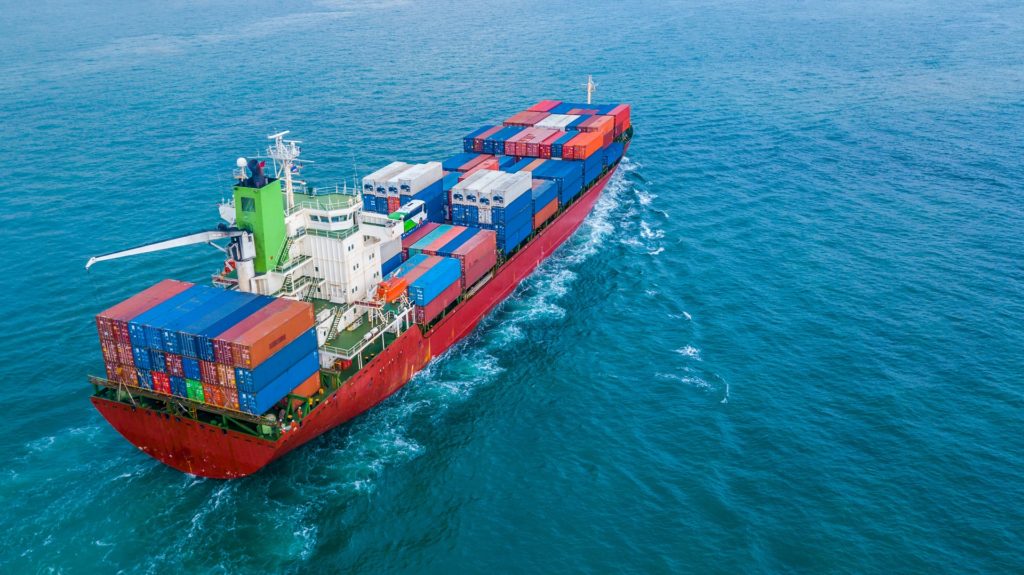
Experts gather to discuss energy and shipping
26-27 February 2020. Maritime experts from the government sector, industry, civil society and academia gathered in Malmö to discuss energy use in shipping. The workshop “Prospects for energy and maritime…
26-27 February 2020.
Maritime experts from the government sector, industry, civil society and academia gathered in Malmö to discuss energy use in shipping. The workshop “Prospects for energy and maritime transport in the Nordic region” was organised by the International Transport Forum (ITF), the World Maritime University (WMU) and Nordic Energy Research. ITF also has a webpage dedicated to this event: ITF-website.
The workshop examined different options available to policymakers and industry for decarbonising the shipping sector. Participants discussed how to capitalise on the Nordic region’s leadership in sustainable shipping, while analysing which technology options are available and technically feasible.
In particular, the discussion explored the status of new technology adoption, looking at existing pilot/demonstration projects on low- and zero-emission enabling technologies used on ships.
The workshop also presented recent updates on the performance of these technologies. Special focus was given to whether and under which circumstances, they could enable zero-emission shipping, their cost profile, how different a given technology is based on vessel type and mission profile, and how a technology could evolve under different uptake scenarios.
The workshop also offered an opportunity to review stated International and Nordic government plans for future developments/policies aiming to influence the development of technologies for the maritime sector, and assessed the implications of different policy choices that might allow different technologies to succeed.
The ITF and Nordic Energy Research will publish a summary the conclusions from the workshop and, at a later stage, a Nordic Energy and Maritime Transport Outlook (NEMO), incorporating input from discussions during this event. The NEMO report will look primarily at technology and policy developments that can be implemented by 2030. This report will feed into ITF’s Decarbonising Transport (DT) project.
The workshop has also informed the development and direction of the Nordic Research Programme on Maritime Transport and Energy of the NER.
Summary of event
- Welcome by WMU Vice-President Dr. Jens Uwe Schröder-Hinrichs
- Introduction by Professor Aykut Ölcer, Director of Research, WMU
- Introduction to ITF and its Decarbonising Transport Initiative, Olaf Merk, ITF, OECD workshop background, objectives and structure
- Introduction by NER and the Nordic Research Programme on Sustainable Maritime Fuels and Efficiency, Svend Søyland, NER
- IMO policy context: Roel Hoenders, IMO
PART I
Technology Focus
- The perspective of an academic: Dr. Tristan Smith, University College London/UMAS
- The perspective of an analyst: Christopher Pålsson, Lloyd`s List Intelligence
Combining efficiency and fuel switching
- Going to zero, Maersk´s plan for Net Zero Emissions by 2050: Anne Sophie Vinther Hansen, Møller Maersk
- The perspective of an engine manufacturer: Michael Jeppesen, MAN
Low-Carbon energy vectors
- Overview of available options: Carlos Ruiz, IRENA
- Pros and Cons of LNG: Kaj Portin, Wärsilä
- The view of shipowners: Fredrik Larsson, Sweship
Zero-Carbon energy vectors
- The role of hydrogen and synthetic fuels: Cedric Philibert, Independent (former IEA)
- Power-to-X and energy carriers for future carbon-neutral shipping: Tue Johannessen, Møller-Maersk
- Electrification of maritime transport: Cecilie Larsen, E-Ferry
- Electric ferries: Anna Prytz, Forsea
PART II – Policy focus
National policy frameworks
- Shipping in the Danish National Climate Plan: Maria Skipper Schwenn, (Danish Shipping)
- Finland Maritime Research Portfolio: Ulla Lainio, (Business Finland)
- Shipping in the Swedish National Climate Plan: Rein Juriado, (Swedish Transport Administration)
- Maritime Research in Norway: Sveinung Oftedal, Specialist Director KLD
- Icelandic priorities: Sigurdur Ingi Fridleifson, (National Energy Authority, Iceland)
Port operations, infrastructure and incentives
- Port call optimisation: Rene Taudal Poulsen, Copenhagen Business School
- Shore power/charging: Thor André Berg, Plug (Norway)
- Shore power systems: Allan Holm Jørgensen, PowerCon, Denmark
- The perspective of a port: Viktor Allgurén, Port of Gothenburg
Facilitating clusters and Maritime and Energy R&D
Panel moderated by: Åsa Burman, Lighthouse project (Sweden)
Panelists:
- Magnus Gary (ShippingLab Denmark), Fredrik Larsson(Sweship), Esa Lindquist(Business Finland), Cecilie Lykkegaard (Danish Maritime), Jon Skulason (NýOrka Iceland) and Rune Volla (Norwegian Research Council.
